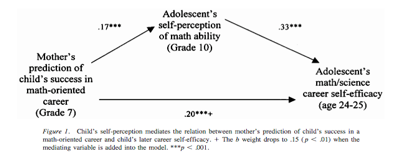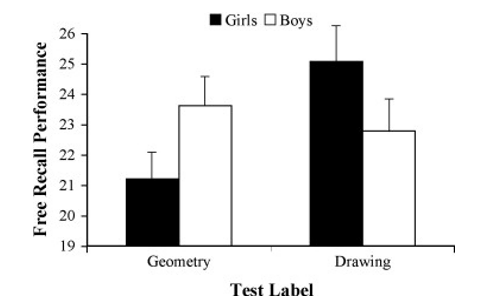mathematics, anxiety, and gender
1/18
There's no tags or description
Looks like no tags are added yet.
Name | Mastery | Learn | Test | Matching | Spaced |
|---|
No study sessions yet.
19 Terms
what are the main influences to maths development?
reading
exposure
variability & selection
explain Siegler & Ramani (2008) - exposure example
number line game (colour vs number condition)
approx. 100 repetitions over 2-3 weeks
children struggle with the idea that numbers are linear
number line estimation significantly improved for number group (no change for colour group) and results were stable after 9 weeks
explain Siegler & Jenkins (1989) - variability & selection example
microgenetic study exploring simple addition strategies - 11 weeks
observed use of multiple strategies to solve the same problem
with experience children begin to rely on more advanced strategies
development involves changes in existing strategies and implementation of new approaches
key aspects of teaching maths
procedural knowledge vs conceptual understanding
maths resilience
the role of working memory
what is procedural knowledge?
knowing how to do something
what is conceptual understanding?
knowing why something is done (in a certain way)
importance of conceptual understanding
performance (e.g. error spotting)
adaption (e.g. applying strategies to diff scenarios)
development of new strategies
motivation
explain Baroody & Dowker’s framework (for maths) (2003)
conceptual understanding (comprehension of maths concepts, operations, and relations)
computational fluency (skills in computing efficiently, appropriately, and flexibly; leads to automacy)
strategic mathematical thinking (strategic competence and adaptive reasoning)
productive disposition (inclination to see maths as sensible and useful, coupled with belief in diligence and self-efficacy)
how to promote conceptual understanding in maths?
use of higher-order conceptually challenging questions
use of plausible and meaningful contexts (possible need for cultural contextual differences)
collaborative discussions of different strategies
Newstead (1998) - collaboration and anxiety
found that non-traditional approaches that promote discussion about strategies led to difference in social anxiety but not in problem solving anxiety
anxiety about getting an answer right or wrong
suggests entity theory of maths ability
what is the entity theory (of mathematical ability)?
assumes ability is fixed, hereditary, and/or biological
what is incremental theory?
assumes maths ability is malleable and can improve
what generates maths anxiety?
having to perform a task rapidly that requires use of memory
memorising formulae without understanding what they mean
listening to a teacher explain a single isolated technique and then imitating repeatedly
motivations factors in gender differences (Stipek & Gralinski, 1991)
self-perception, attribution, and shame
higher competence belief in boys
higher expected performance in boys
lower belief in value of effort for success by girls (belief they succeeded by luck)
greater tendency to feel like hiding paper by girls
BUT no difference in actual performance
parental expectations and gender differences
parents have sex-based ideas about maths performance despite actual similarity (Parsons et al. 1982)
parents beliefs even more important for shaping children’s self-perceptions than their own past performance
Bleeker & Jacobs (2004) - mother’s predictions of child success in maths career was associated with adolescent perception of self-efficacy in STEM career 12 years later

role of gender stereotypes and maths ability
5-year olds have own-gender bias for who they perceive to be smart
6-year olds - only boys show own-gender bias; girls lose this bias
girls beliefs are not correlated with beliefs about school achievement
Bian, Leslie & Cimpian (2017)
explain Huguet & Raynor (2009)
when told they were being tested on geometry girls performed worse than when they were told they were being tested on drawing ability (stereotype threat)
but girls believed they were better at geometry (own-gender bias)
boys had own-gender bias but showed stereotype threat result

consequences of anxiety on performance (Ramirez et al., 2013)
only maths anxious participants with good working memory showed worse performance on more complex tests (compromised their advantage)
when problems start to get more complex, anxiety and stereotypes can start to affect performance
social context of conceptual change (Boaler, 2002)
interviewed students and found they they often wanted to give up maths not because they struggled with it but because they don’t want to be perceived as received knowers
implies that girls want to have agency in their learning (controversial - don’t boys need this too?)